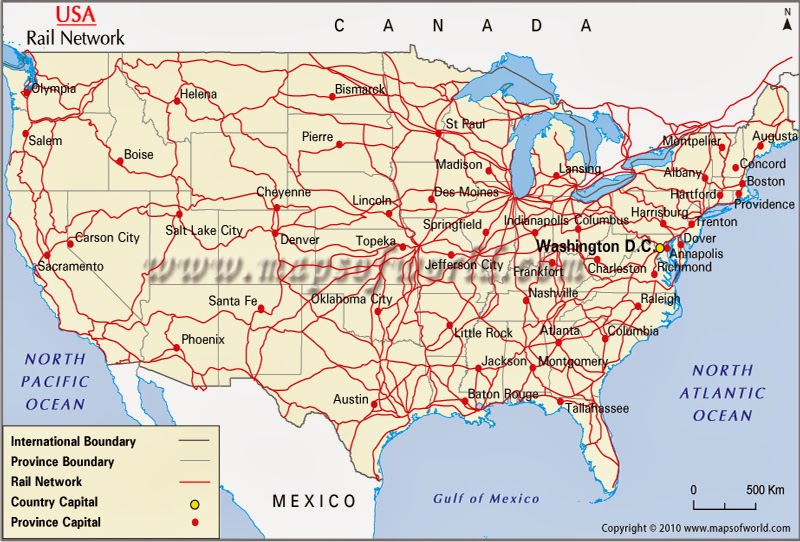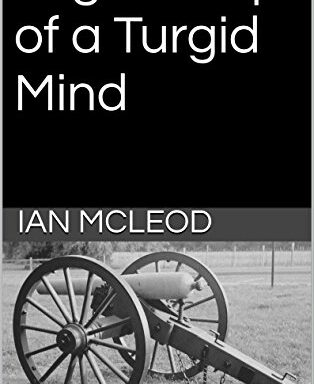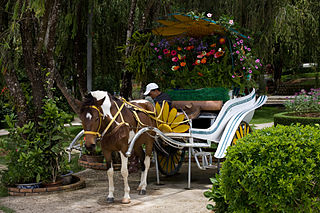What do an ex-hippy curmudgeon like James Howard Kunstler and an ultra-conservative* military consultant like William S. Lind have in common? For different reasons**, each is convinced that rail transportation will and should play a much larger role in the future of America. If they are correct, then where the trains run may control the movement of and therefore determine the availability of all non-local goods.
Long before diesel reaches $20 a gallon, the owner-operators that make up much of America’s truck fleet are going to give it up. Not even Wal Mart will be able to afford to truck inexpensive goods to every small town in America. When goods cannot be shipped cheaply en masse, markets must necessarily shrink. That’s going to come as a massive shock to an economy predicated on perpetual market growth.
If Peak Cheap Oil or war/embargo in the Middle East throws sand in the gears of our modern motor culture, we will need to find a more energy-efficient means for moving goods. For moving goods out of America, there has never been a cheaper and more efficient road than our river system. Nothing can compete with the ease or cost of moving goods down Big Muddy. For moving people and goods in other directions, however, rail is by far the most efficient method. That trains can run on diesel, on electric, on coal, and on time*** is an added bonus.
Kunstler argues that for a number of technological reasons, the railways we have today – including those former railways converted to bike trails – might be all the railways we’ll ever get. That means areas that have railroad access today may suffer less market disruption and even scarcity in the future than those that do not. On the other hand, it is not only goods that can arrive by rail, but bads as well.
In any number of SHTF scenarios, the availability of railroads within a reasonable distance may mean the difference between remaining part of a larger market system and living in almost complete isolation. Some preppers want the former, others pine for the latter. Just one more factor to consider when deciding where to dig in for the long run.
* No, that’s not a perjorative. Lind is an old-school, proto-monarchist who thinks Western civilization might have been better served had Germany won the Great War.
** Kunstler (The Long Emergency) is convinced that Peak Cheap Oil means the end of our suburban motoring culture making future rail a default, whereas Lind (The Next Conservatism) is primarily concerned with making the choice of rail available today for the societal benefits it will bring.
*** Historical fact of the day: standard times and time zones were introduced in the 19th century to allow for coordination of railroad schedules.










5
Loving this series, El Borak!
Thanks. At least 6 more to go, though I may look for a way to stretch it further…
I so wish that the government or the railroads would make leisure rail travel available to us in Texas. Train travel between small towns was ubiquitous when I was young, and really should still be, since freight trains still run all those same routes.
And I agree with darksidelawyer, this is an excellent series. Lots to think about and even if we don’t plan to move, it gives us a better sense of some of the issues our peculiar areas might face.
Could you expound on the technological reasons why we may not get more railroads? I’m very curious what they are
Kunstler’s technological argument against future railroad expansion is predicated on his assumption of a much lower-energy future. Under that scenario, it will be more difficult to make (or God forbid import) millions of tons of rail-grade steel, so what we do have will likely be dedicated more to maintenance on current tracks instead of expansion. Rebuilding our railroads, he argues, is not simply a matter of laying down tracks where they were before. Because so much of that infrastructure has been moved or repurposed, it will be no easier to expand this time than it was the first time. We simply will not have the available energy that we enjoy in the current peaceful, pretty-efficient economy
He also makes an economic argument. This time, the feds can’t give away half of Kansas so the railroads can raise capital, so even if they decided that we could make the steel, it still takes tons of capital to build a railroad, and provides little short-term return. In a collapsed economy, Kunstler argues that huge, capital-intensive projects may simply prove impossible to fund effectively, especially if the rebels start blowing the bridges up.